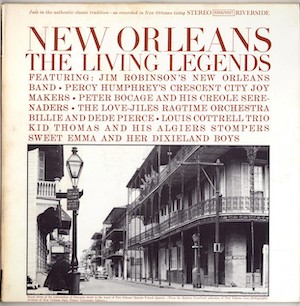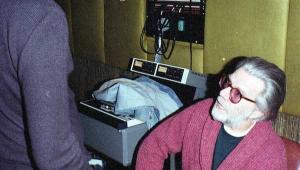Great article about someone behind the scenes who had a short but fascinating career. Thank you so much Mr. Washek and MF for publishing. Despite being in existence only about a decade it's pretty amazing how much wonderful music Riverside released, and the label really doesn't get the accolades that Blue Note, Verve or even Prestige generally receive. Pretty cool someone working with Tchicai and Rudd is also writing about New Orleans recordings from the 60's (though I'm sure he's aware Rudd put in some dues in striped shirt "Dixieland" bands to pay the rent).
Working in a Philadelphia-area mostly used record store in early 80's infrequently encountered some of these titles but never auditioned. They tended to be pretty beat up and didn't recognize any of the performers as being "original" New Orleans jazzers. Recall Atlantic also recorded some "trad" jazz around that time from more "recognizable" performers like Young Tuxedo Brass Band, Wilbur de Paris and Paul Barbarin. But otherwise was mostly Dixieland-style schlock. Just ordered 'New Orleans: The Living Legends' on Discogs so looking forward to checking it out!
BTW - audio publication readers of a certain age might recognize Chris Albertson as being a long-time reviewer in Stereo Review.





























































